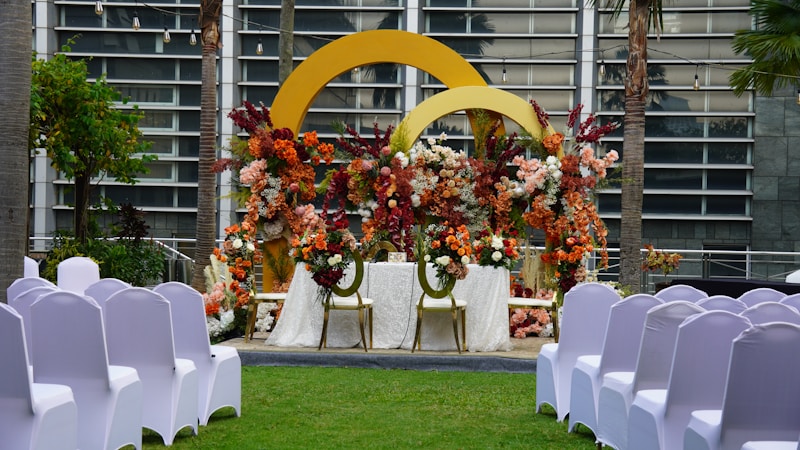The Ultimate Guide to an Efficient Wedding Checklist
The Ultimate Guide to an Efficient Wedding Checklist
Planning Your Dream Wedding: An Efficient Wedding Checklist
Weddings are one of the most important days in many people's lives, and careful planning is essential to ensure everything goes seamlessly. This article will provide you with an efficient wedding checklist that will help you stay organized and ensure that nothing is overlooked. Say goodbye to overwhelming stress and hello to a day filled with love, laughter, and unforgettable memories!
Why an Efficient Wedding Checklist is Essential
Planning a wedding involves a multitude of tasks that can quickly become overwhelming. An efficient wedding checklist helps you break down these tasks into manageable parts, ensuring that you stay on track and make decisions that reflect your vision. A checklist not only helps you stay organized but also alleviates the pressure that often comes with wedding planning. Below are key components of an efficient wedding checklist:
| Category | Action Items |
| Venue | Research locations, book the venue, finalize details. |
| Catering | Taste and select menu, hire a catering service. |
| Wedding Attire | Find and fit wedding dress/suit, accessories. |
| Guest List | Create a list, send out invitations, track RSVPs. |
| Photography | Research photographers, book sessions, discuss styles. |
| Entertainment | Choose a DJ/band, plan the playlist, organize program. |
| Decorations | Select theme, order or create decorations, book floral arrangements. |
| Day-of Coordination | Plan timeline, delegate tasks, confirm all bookings. |
Break Down the Wedding Planning Timeline
To further enhance the efficiency of your wedding planning, create a timeline that outlines your tasks leading up to the big day. Here’s a brief overview of a suggested wedding planning timeline:
12-18 Months Before
- Set a budget and determine funding sources.
- Begin forming your guest list.
- Research and secure your venue.
- Book your officiant.
- Start researching vendors (photographers, caterers, etc.).
6-12 Months Before
- Finalize your guest list and send save-the-dates.
- Choose and order wedding attire for the couple and wedding party.
- Book photographer and videographer.
- Plan and book entertainment.
- Start planning the menu with the caterer.
3-6 Months Before
- Send out invitations.
- Confirm vendor bookings and details.
- Finalize decor and floral arrangements.
- Plan transportation.
- Schedule hair and makeup trials.
1-2 Months Before
- Confirm the final guest count with vendors.
- Finalize seating arrangements.
- Prepare wedding favors.
- Meet with the officiant to discuss the ceremony details.
1 Week Before
- Confirm all bookings and schedules.
- Create a day-of itinerary.
- Prepare payment envelopes for vendors.
- Relax! Enjoy a spa day or a fun outing.
Additional Considerations for an Efficient Wedding Checklist
While the above categories provide a comprehensive approach to your wedding checklist, consider additional aspects to ensure a smooth experience:
Budgeting
Setting a realistic budget is vital. Allocate funds for each aspect of the wedding, and prioritize spending on critical areas such as the venue, photography, and catering. Additionally, consider unforeseen expenses which can arise, having a contingency plan for unexpected costs.
Vendor Management
Communication is key when working with vendors. Confirm appointments, review contracts thoroughly, and ensure everyone is on the same page. A designated point of contact, such as a wedding planner or a dependable family member, can streamline communication and prevent mishaps.
Wedding Themes and Styles

Choosing a wedding theme helps unify your wedding aesthetics. Whether you're considering a rustic theme, a beach wedding, or something more traditional, ensure your decorations, attire, and even invitations align with that vision.
Legalities
Don’t forget to include the legal aspects of getting married, such as obtaining a marriage license which varies by the location of your wedding. Research your state's requirements and gather necessary documentation to avoid last-minute issues.
Common Questions Regarding Efficient Wedding Checklists
As you embark on your wedding planning journey, you may find yourself wondering about various aspects of the process. Below are some frequently asked questions to aid your planning:
How long should I plan my wedding?
While the average engagement lasts about 12-18 months, the ideal planning timeline varies based on your preferences and circumstances. Remember to factor in peak wedding seasons which can affect vendor availability.
What are some tips for staying on budget?
Track expenses diligently, seek less costly vendors or DIY options where possible, and prioritize spending on elements that are most meaningful to you.
How can I make my wedding personal?
Incorporate family traditions, personalize vows, and choose decorations that reflect your journey as a couple. Custom touches make the wedding uniquely yours.
Conclusion: Crafting Your Efficient Wedding Checklist
Creating an efficient wedding checklist is an essential part of ensuring your wedding day unfolds beautifully. By breaking the planning down into manageable parts, adhering to a structured timeline, and staying flexible throughout the process, you can alleviate much of the stress associated with wedding planning. As you prepare for this very special day, remember to enjoy the journey and cherish the moments you create along the way. Happy planning!
